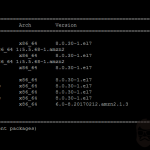做管理系统的,无论是bs结构的还是cs结构的,都不可避免的涉及到数据库表结构的设计,sql语句的编写等。因此在开发系统的时候,表结构设计是否合理,sql语句是否标准,写出的sql性能是否优化往往会成为公司衡量程序员技术水平的标准。
我们程序员不是dba,不需要时刻关注sql运行时间,想方设法优化表结构,存储空间,优化表读取速度等等,但是在开发系统时,时刻保持优良的写sql语句的作风是很有必要的,这关乎到个人在公司的声誉,嘿嘿,你懂的。。。
新来的程序员老鸟,在一个开发团队中,需要表现一下自己的水平,奠定在公司的地位,需要努力表现一把,最简单的从写的sql语句就很容易表现出来,曾经就有一次,一个老程序员,上面定位是要做团队领导的,先历练一下做个制单的模块,列表sql中有一列这位老鸟直接写了个select语句从别的表中取之,而不是用表之间关联得到,一下破坏自己程序员老鸟光辉形象。
做技术的还是要注重自己的内涵,提升内功,哈哈。
闲话少说,总结一点程序员老鸟写sql顺手拈来的功夫吧:
1. 不论一个sql中涉及到多个表,每次都用两个表(结果集)操作,得到新的结果后,再和下一个表(结果集)操作。
2. 避免在select f1,(select f2 from tableB ).... from tableA 这样得到字段列。直接用tableA和tableB关联得到A.f1,B.f2就可以了。
3.避免隐含的类型转换
如
select id from employee where emp_id='8' (错)
select id from employee where emp_id=8 (对)
emp_id是整数型,用'8'会默认启动类型转换,增加查询的开销。
4. 尽量减少使用正则表达式,尽量不使用通配符。
5. 使用关键字代替函数
如:
select id from employee where UPPER(dept) like 'TECH_DB' (错)
select id from employee where SUBSTR(dept,1,4)='TECH' (错)
select id from employee where dept like 'TECH%' (对)
6.不要在字段上用转换函数,尽量在常量上用
如:
select id from employee where to_char(create_date,'yyyy-mm-dd')='2012-10-31' (错)
select id from employee where create_date=to_date('2012-10-31','yyyy-mm-dd') (对)
7.不使用联接做查询
如:select id from employee where first_name || last_name like 'Jo%' (错)
8. 尽量避免前后都用通配符
如:
select id from employee where dept like '%TECH%' (错)
select id from employee where dept like 'TECH%' (对)
9. 判断条件顺序
如:
select id from employee where creat_date-30>to_date('2012-10-31','yyyy-mm-dd') (错)
select id from employee where creat_date >to_date('2012-10-31','yyyy-mm-dd')+30 (对)
10. 尽量使用exists而非in
当然这个也要根据记录的情况来定用exists还是用in, 通常的情况是用exists
select id from employee where salary in (select salary from emp_level where....) (错)
select id from employee where salary exists(select 'X' from emp_level where ....) (对)
11. 使用not exists 而非not in
和上面的类似
12. 减少查询表的记录数范围
13.正确使用索引
索引可以提高速度,一般来说,选择度越高,索引的效率越高。
14. 索引类型
唯一索引,对于查询用到的字段,尽可能使用唯一索引。
还有一些其他类型,如位图索引,在性别字段,只有男女的字段上用。
15. 在经常进行连接,但是没有指定为外键的列上建立索引
16. 在频繁进行排序会分组的列上建立索引,如经常做group by 或 order by 操作的字段。
17. 在条件表达式中经常用到的不同值较多的列上建立检索,在不同值少的列上不建立索引。如性别列上只有男,女两个不同的值,就没必要建立索引(或建立位图索引)。如果建立索引不但不会提高查询效率,反而会严重降低更新速度。
18. 在值比较少的字段做order by时,翻页会出现记录紊乱问题,要带上id字段一起做order by.
19. 不要使用空字符串进行查询
如:
select id from employee where emp_name like '%%' (错)
20. 尽量对经常用作group by的关键字段做索引。
21. 正确使用表关联
利用外连接替换效率十分低下的not in运算,大大提高运行速度。
如:
select a.id from employee a where a.emp_no not in (select emp_no from employee1 where job ='SALE') (错)
22. 使用临时表
在必要的情况下,为减少读取次数,可以使用经过索引的临时表加快速度。
如:
select e.id from employee e ,dept d where e.dept_id=d.id and e.empno>1000 order by e.id (错)
select id,empno from employee into temp_empl where empno>1000 order by id
select m.id from temp_emp1 m,dept d where m.empno=d.id (对)
对于大数据量sql语句性能优化更多的工作就交给dba去实践,我们程序员做好这些基本功就好了。



![MYSQL[快问快答系列面试题]](https://blog.p2hp.com/wp-content/plugins/wordpress-23-related-posts-plugin/static/thumbs/12.jpg)


